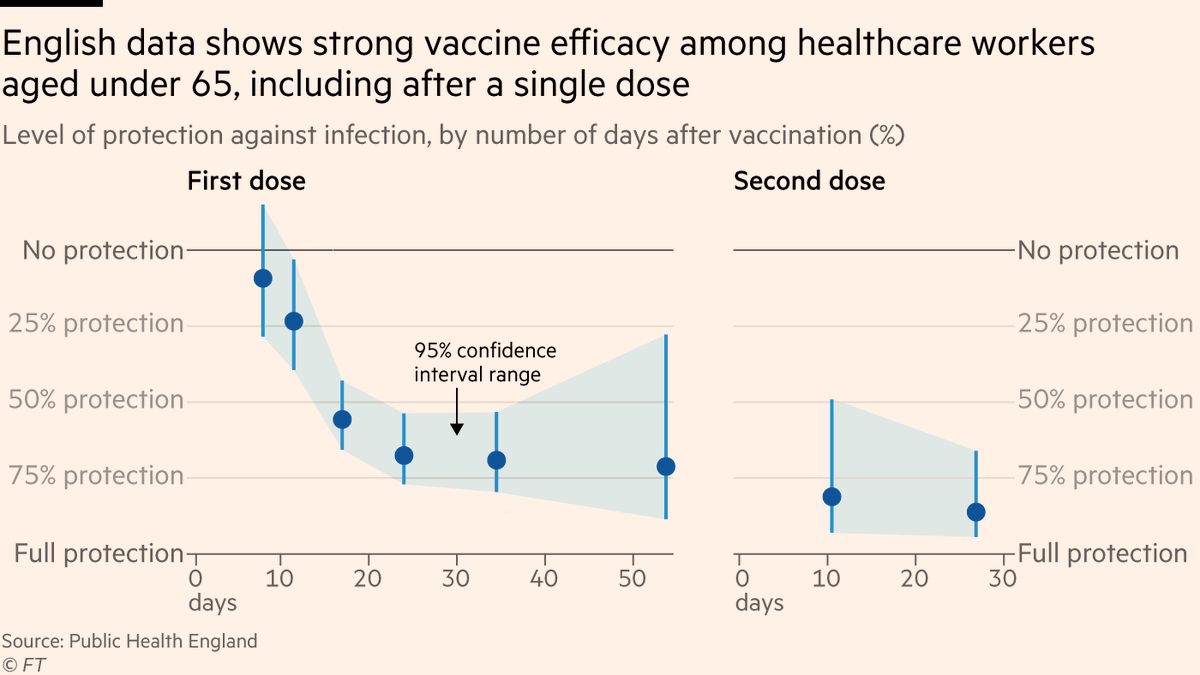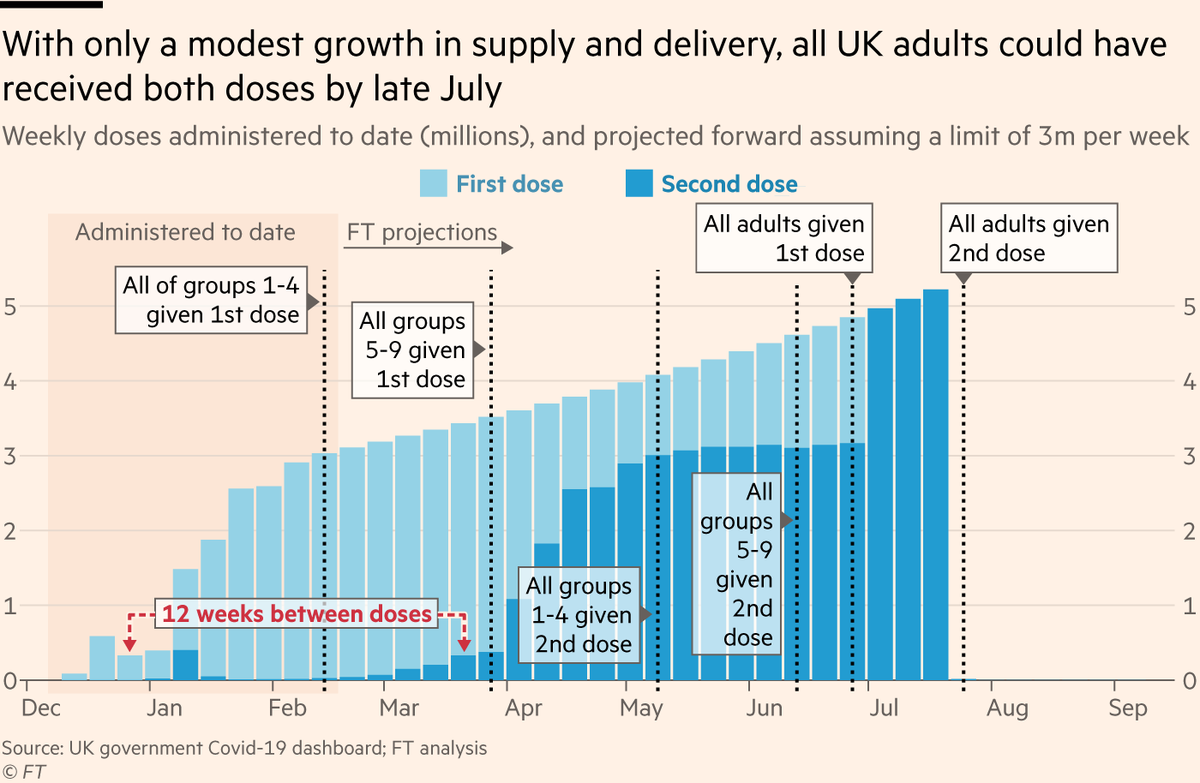
NEW thread: Vaccines vs Variants
Vaccine effect is increasingly clear in France 🇫🇷🎉, with rates of cases, hospitalisations & deaths all falling among people aged 80+ while rising among younger groups
Could this change attitudes among Europe’s most vaccine-hesitant population?
Vaccine effect is increasingly clear in France 🇫🇷🎉, with rates of cases, hospitalisations & deaths all falling among people aged 80+ while rising among younger groups
Could this change attitudes among Europe’s most vaccine-hesitant population?

As ever, we’ve run the same analysis for the previous rise and fall, to make sure rates don’t always decline fastest among elderly.
And as ever, they don’t: after France’s autumn peak, rates fall more slowly among 80+. More evidence that what we’re seeing now is due to vaccines
And as ever, they don’t: after France’s autumn peak, rates fall more slowly among 80+. More evidence that what we’re seeing now is due to vaccines

You’ll notice that although the French vaccine effect is clear on all metrics, this is in large part because rates are *rising* among younger groups.
The rate of decline among France’s elderly is much less steep than in the UK, but the contrast against younger groups is larger.

The rate of decline among France’s elderly is much less steep than in the UK, but the contrast against younger groups is larger.


And this where the picture for France becomes less rosy.
1) That decline among elderly would be a lot steeper (and would have progressed into younger groups) if the vaccine’s rollout and uptake there weren’t so slow
2) That increase among younger groups is a problem
1) That decline among elderly would be a lot steeper (and would have progressed into younger groups) if the vaccine’s rollout and uptake there weren’t so slow
2) That increase among younger groups is a problem
France has given at least one dose to just 28% of its 80+ group. In England the figure is 94%.
At one point it was popular to suggest that this was simply because the UK approved Pfizer before the EU did, but if we normalise by approval date, France still lags markedly.
At one point it was popular to suggest that this was simply because the UK approved Pfizer before the EU did, but if we normalise by approval date, France still lags markedly.

Very high levels of vaccine hesitancy are a big part of this, but not the only part.
The French govt has now reversed its decision not to use AZ for the over-65s, but the delay has already set things back.
France had so far used only 24% of its Ox/AZ doses, vs 90% of its Pfizer
The French govt has now reversed its decision not to use AZ for the over-65s, but the delay has already set things back.
France had so far used only 24% of its Ox/AZ doses, vs 90% of its Pfizer
All of this is especially critical for France because it now finds itself in a very similar place to where the UK was in early December:
After watching rates fall and feeling like the worst was over, France is now facing a sudden rise in cases fuelled by the new variants.
After watching rates fall and feeling like the worst was over, France is now facing a sudden rise in cases fuelled by the new variants.

Two months ago variants made up <5% of French cases. Now they‘re thought to be the majority.
B.1.1.7 (UK) accounts for more than 1/3 of cases in half of France’s regions; B.1.351 (South Africa) and P.1 (Brazil) account for more than a third in the Moselle santepubliquefrance.fr/dossiers/coron…
B.1.1.7 (UK) accounts for more than 1/3 of cases in half of France’s regions; B.1.351 (South Africa) and P.1 (Brazil) account for more than a third in the Moselle santepubliquefrance.fr/dossiers/coron…

Big question now is whether France can accelerate its vaccine rollout to head off the threat of the variants, or whether it will have to resort to the blunter instrument of further lockdowns.
For the full details, read our story with @VJMallet @labboudles ft.com/content/8cb348…
For the full details, read our story with @VJMallet @labboudles ft.com/content/8cb348…
With the new variants also now spreading elsewhere in Europe, "Vaccines vs Variants" is a challenge many countries will face in the coming weeks and months.
@EricTopol has a very handy summary of what we do and don’t know about the three variants here
@EricTopol has a very handy summary of what we do and don’t know about the three variants here
https://twitter.com/EricTopol/status/1360331979523194881
Finally, some shout-outs:
First to @thomasforth, who has been looking at the French vaccine effect for a while now, and helped me source the data
First to @thomasforth, who has been looking at the French vaccine effect for a while now, and helped me source the data
https://twitter.com/thomasforth/status/1366475333851996161
Second to @GuillaumeRozier who has also been looking at French data by age for a few days now
https://twitter.com/GuillaumeRozier/status/1366851268862488585
And third to @eorphelin who alerted me to the French data on variants vs old-Covid
https://twitter.com/eorphelin/status/1365731511908134915
• • •
Missing some Tweet in this thread? You can try to
force a refresh

















